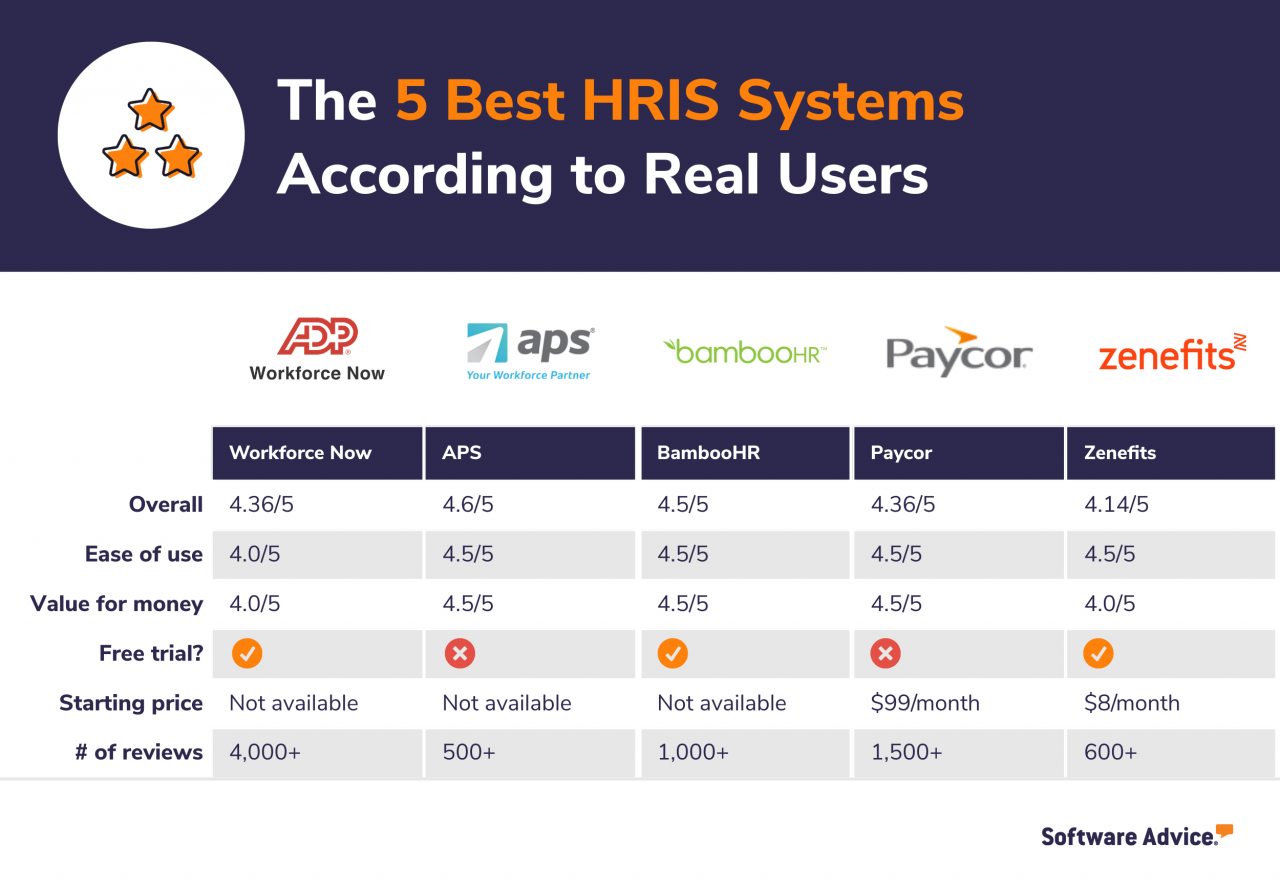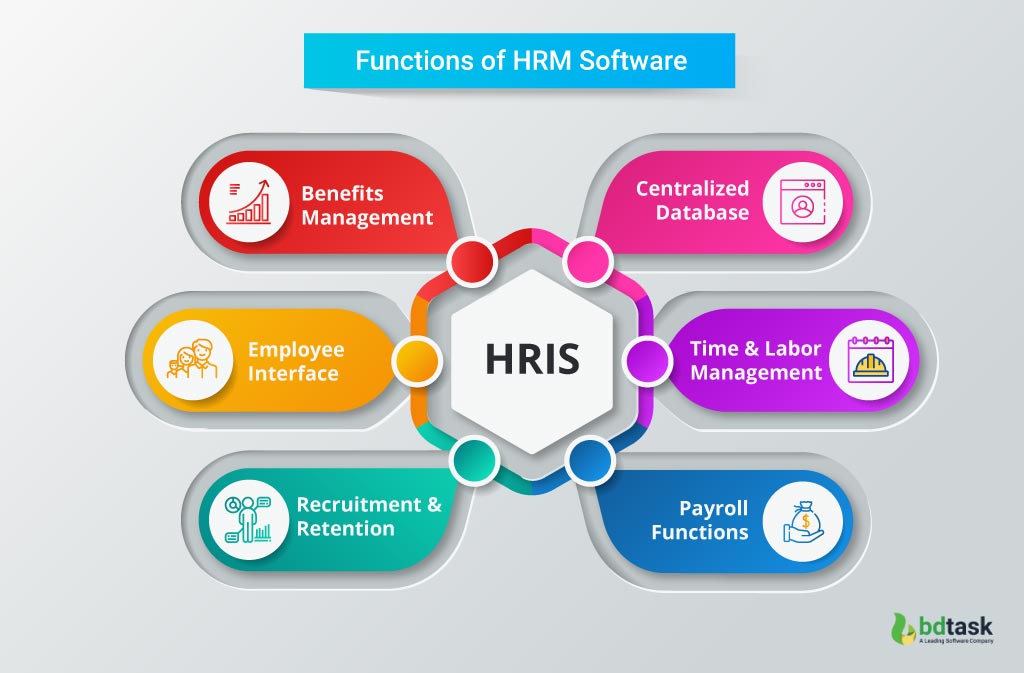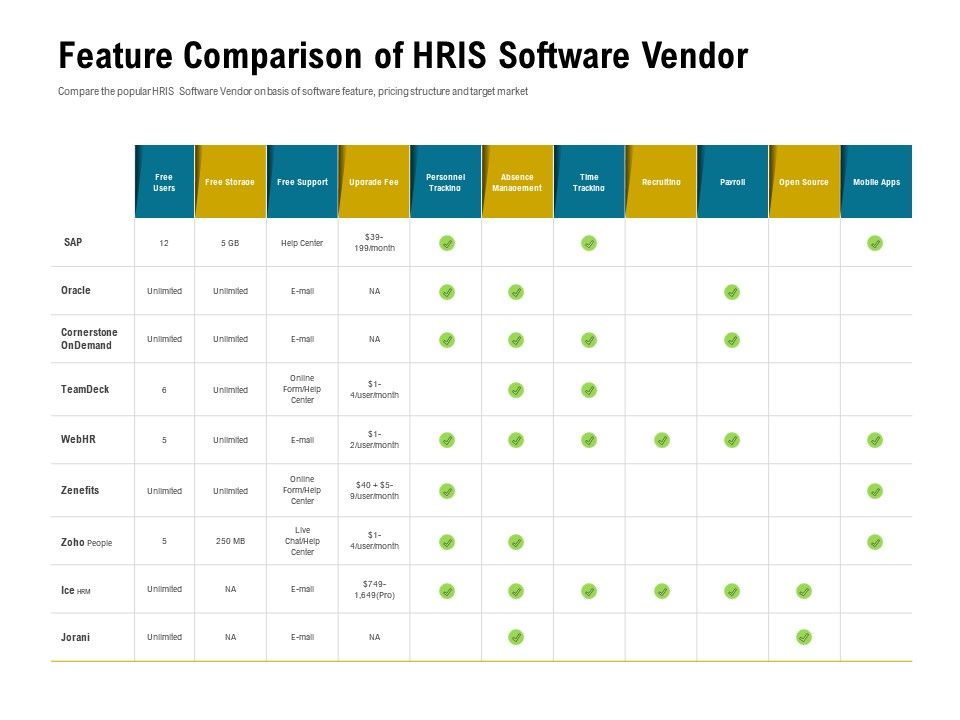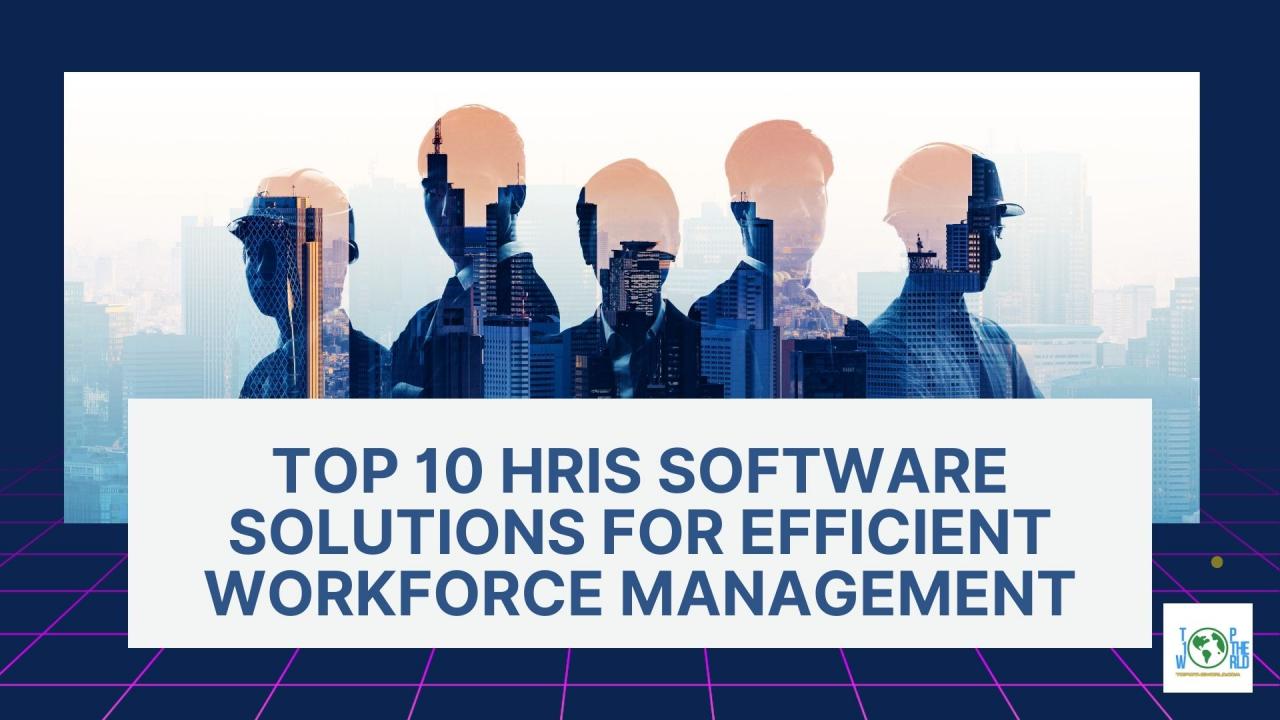Selecting HRIS system vendors with excellent customer support isn’t just about finding software; it’s about finding a partner. A smooth HRIS implementation hinges on responsive, reliable support, and choosing the wrong vendor can lead to costly downtime and frustrated employees. This guide dives deep into how to identify vendors who prioritize customer satisfaction, ensuring your HR tech journey is seamless and stress-free.
From defining what constitutes “excellent” customer support in the HRIS world to negotiating favorable support contracts, we’ll cover everything you need to know. We’ll explore various support channels, delve into vendor research strategies, and provide actionable tips for evaluating support resources and contracts. Real-world examples and hypothetical case studies will illustrate the impact of choosing the right (or wrong) vendor, making this a practical guide for HR professionals of all levels.
Defining “Excellent” Customer Support in HRIS
Choosing the right HRIS system is a big deal, impacting everything from payroll processing to employee engagement. But beyond the software features, the quality of customer support is crucial for a smooth implementation and ongoing success. A robust support system can be the difference between a seamless HR experience and a constant headache. Let’s delve into what constitutes truly excellent HRIS customer support.
Key Characteristics of Excellent HRIS Customer Support
Five key characteristics define excellent customer support in the HRIS context. These go beyond simply fixing bugs; they represent a commitment to partnership and success. These characteristics are essential for minimizing downtime, maximizing user satisfaction, and ensuring the HRIS system delivers on its promises.
- Responsiveness: Excellent support teams respond quickly to inquiries, resolving issues promptly and efficiently. This means providing timely acknowledgments and updates, even if a complete solution isn’t immediately available.
- Expertise: Support staff possess deep knowledge of the HRIS system, its functionalities, and best practices for its use. They can accurately diagnose problems and provide effective solutions.
- Proactiveness: Rather than simply reacting to problems, proactive support anticipates potential issues and offers solutions or preventative measures. This might involve providing regular system updates or offering training sessions.
- Accessibility: Multiple support channels (phone, email, chat, knowledge base) are readily available and easily accessible, allowing users to choose the method that best suits their needs and preferences.
- Empathy and Professionalism: Support interactions are handled with courtesy, understanding, and a genuine desire to help. Staff are patient and communicate clearly, even when dealing with complex or frustrating situations.
Reactive vs. Proactive Customer Support in HRIS
The difference between reactive and proactive customer support is significant. Reactive support addresses issues
- after* they occur, while proactive support aims to prevent problems
- before* they arise.
Reactive Support Example: An employee reports an error in their payslip. The support team investigates the issue, identifies the cause (a data entry error), corrects the error, and resends the payslip. This is a reactive response to a reported problem.
Proactive Support Example: The HRIS vendor proactively releases a system update that patches a known security vulnerability, preventing potential data breaches before they happen. Or, they might send out a newsletter with tips and best practices for using a specific feature to avoid common user errors.
Impact of Different Customer Support Channels on User Satisfaction
Different support channels cater to varying user preferences and urgency levels. The impact on user satisfaction is directly linked to response time, cost-effectiveness, and overall ease of use.
| Channel | Response Time | Cost | User Satisfaction |
|---|---|---|---|
| Phone | Generally fastest, but can vary | Can be high, especially for extended calls | High for immediate resolution, but can be frustrating if on hold |
| Moderate response time, dependent on vendor’s capacity | Generally low cost | Moderate satisfaction; good for non-urgent issues but can be slow | |
| Chat | Relatively fast, ideal for quick questions | Generally low cost | High for quick resolution of simple issues |
| Knowledge Base | Self-service; immediate access to information | Very low cost | Variable; high if information is comprehensive and easy to find, low if not |
Vendor Research and Selection Criteria: Selecting HRIS System Vendors With Excellent Customer Support

Choosing the right HRIS vendor is a crucial decision impacting your company’s efficiency and employee satisfaction. Thorough research and a well-defined selection process are essential to ensure you find a system that not only meets your needs but also provides exceptional customer support. This section Artikels key steps to guide you through vendor research and the selection criteria you should prioritize.
Effective vendor selection goes beyond simply comparing features and pricing. A robust support system is critical for a smooth implementation and ongoing success. Consider the long-term implications of inadequate support, including potential disruptions, lost productivity, and frustrated employees. This section will help you navigate the complexities of vendor research and selection, focusing specifically on the quality of customer support.
Reputable Sources for HRIS Vendor Research
Finding reliable information on HRIS vendors and their customer support reputations is paramount. Three excellent sources for this research include independent review sites, industry analyst reports, and peer recommendations. Independent review sites like G2 or Capterra provide user-submitted reviews, often detailing experiences with customer support. Industry analyst reports from firms like Gartner or Forrester offer in-depth analyses of various HRIS vendors, including assessments of their support capabilities.
Finally, networking with HR professionals in your industry can provide valuable insights based on real-world experiences. These sources offer diverse perspectives, helping you build a comprehensive understanding of each vendor’s strengths and weaknesses.
Essential Questions Regarding Customer Support Processes
Asking the right questions is vital to understanding a vendor’s commitment to customer support. Instead of generic inquiries, focus on specific details that reveal the true nature of their support capabilities. For example, you should inquire about their service level agreements (SLAs), including response times for different issue severities. Understanding their support channels (phone, email, chat, etc.) and their availability (24/7, business hours only) is also crucial.
Furthermore, you should investigate their knowledge base resources, training materials, and proactive support offerings. Finally, request details on their escalation procedures for complex or unresolved issues. These inquiries will provide a clear picture of the support you can expect.
Comparison of Hypothetical HRIS Vendor Support Offerings
Let’s compare three hypothetical vendors: “HR Solutions Plus,” “PeopleWise Systems,” and “TalentPro.” HR Solutions Plus boasts a 24/7 support line with a stated SLA of a 1-hour response time for critical issues and 4-hour response time for standard issues. Their support channels include phone, email, and a comprehensive online knowledge base. PeopleWise Systems offers support during standard business hours (9 AM to 5 PM) with an SLA of 24-hour response time for all issues.
Choosing the right HRIS vendor means prioritizing more than just user-friendliness; robust security is key. Before signing on the dotted line, thoroughly investigate a vendor’s commitment to data protection, checking out resources like this guide on HRIS system security features and data protection to ensure your employee data is safe. Ultimately, selecting a vendor with excellent customer support and a strong security posture safeguards your company’s most valuable asset: its people.
They primarily rely on email and a limited online FAQ section. TalentPro provides support through a combination of phone, email, and a robust online portal with a comprehensive knowledge base, video tutorials, and community forum. Their SLA promises a 4-hour response time for critical issues and 24 hours for standard issues, operating during standard business hours. Each vendor’s approach demonstrates a different level of commitment to customer support, impacting the overall user experience.
This highlights the importance of carefully comparing SLAs and support hours before selecting a vendor.
Evaluating Vendor Support Resources

Choosing the right HRIS system is a big deal, and a crucial part of that decision hinges on the vendor’s commitment to customer support. A robust support system isn’t just a nice-to-have; it’s a necessity for smooth implementation, efficient ongoing use, and minimizing costly downtime. Think of it as your safety net – the better the net, the less likely you are to fall.Ready access to comprehensive support resources significantly impacts the success of your HRIS implementation.
Without readily available information and assistance, even the most feature-rich system can become a frustrating, unproductive tool. Effective support minimizes disruption, reduces training time, and empowers your HR team to focus on strategic initiatives rather than troubleshooting technical issues. The right resources can transform a potentially stressful experience into a seamless transition.
Documentation’s Crucial Role in HRIS Success
Thorough and well-organized documentation is the cornerstone of any successful HRIS implementation. User manuals, FAQs, and tutorials serve as self-service solutions, empowering users to resolve common issues independently. This reduces the reliance on vendor support teams, freeing them to handle more complex problems and ensuring quicker response times for critical issues. Imagine a scenario where employees can easily access step-by-step instructions for completing payroll or managing employee benefits – that’s the power of effective documentation.
Choosing the right HRIS vendor means prioritizing robust customer support; after all, you’ll need help navigating the system’s complexities. A key aspect of this is effectively leveraging the HRIS for tasks like managing employee performance using HRIS systems , and a responsive vendor ensures a smooth implementation and ongoing support. Therefore, thorough vendor research focusing on their customer service track record is crucial for a successful HRIS journey.
It reduces errors, increases user confidence, and ultimately, contributes to a more efficient HR department.
Checklist for Evaluating Online Support Resources
A structured approach to evaluating vendor support resources ensures a comprehensive assessment. The following checklist can help you objectively evaluate the quality and comprehensiveness of a vendor’s online support offerings:
- Ease of Navigation: Is the support portal easy to navigate and find specific information quickly?
- Content Completeness: Does the documentation cover all aspects of the system, including advanced features and troubleshooting?
- Accuracy and Up-to-Date Information: Is the information accurate, current, and regularly updated to reflect system changes?
- Search Functionality: Does the portal have a robust search function to easily locate relevant information?
- Multimedia Support: Are there videos, tutorials, and interactive elements to enhance understanding?
- Multilingual Support: Does the documentation cater to users who speak different languages?
- Accessibility: Is the documentation accessible to users with disabilities?
- Regular Updates: Does the vendor commit to regularly updating the documentation to reflect new features and bug fixes?
Types of Vendor Support Resources and Their Benefits
Vendors offer a variety of support resources, each catering to different needs and preferences. Understanding these options and their respective strengths is vital in selecting a vendor that aligns with your organization’s requirements.
- Webinars: Webinars provide interactive training sessions, allowing users to learn about new features, best practices, and troubleshooting techniques in a dynamic environment. They often feature Q&A sessions, fostering direct interaction with experts.
- Online Forums: Online forums function as community hubs where users can interact with each other and share their experiences, solutions, and best practices. This peer-to-peer support can be invaluable for resolving common issues and learning from others’ experiences. Think of it like a collaborative troubleshooting hub.
- Dedicated Account Managers: Having a dedicated account manager provides a personalized touch, ensuring consistent support and proactive guidance throughout the implementation and ongoing use of the system. They act as a single point of contact for all support requests, ensuring a streamlined and efficient support experience.
- Knowledge Base/FAQ: A well-structured knowledge base or FAQ section allows users to quickly find answers to common questions without needing to contact support directly. This reduces wait times and empowers users to resolve issues independently.
- Phone Support: Direct phone support offers immediate assistance for urgent issues or situations requiring real-time guidance. This is especially beneficial for complex problems that require immediate attention.
Case Studies and Testimonials

Choosing the right HRIS vendor hinges significantly on the quality of their customer support. A robust system is only as good as the assistance provided when things go wrong or questions arise. Understanding how vendors respond to challenges and support their clients is crucial for a smooth implementation and ongoing success. This section delves into real-world examples and user feedback to illustrate the impact of excellent—and poor—customer support.
Analyzing case studies and testimonials offers invaluable insights into the practical application of vendor support. These firsthand accounts provide a more nuanced understanding than marketing materials alone, revealing the true strengths and weaknesses of various HRIS providers.
Hypothetical Case Study: Smooth Sailing with Stellar Support
Imagine “Acme Corp,” a rapidly growing tech startup with 200 employees. They chose “HRZenith,” an HRIS vendor known for its exceptional customer support, to manage their HR processes. During implementation, Acme Corp encountered an unexpected integration issue with their existing payroll system. HRZenith’s dedicated support team responded swiftly, providing remote assistance and proactive communication throughout the resolution process.
The team worked tirelessly, even extending their hours to ensure the integration was completed before the next payroll cycle. This proactive and efficient support minimized disruption, prevented costly delays, and significantly reduced stress on Acme Corp’s HR department. The positive experience fostered trust and strengthened the relationship between Acme Corp and HRZenith, ensuring a smooth transition and long-term success with the HRIS system.
Fictional Testimonials: Voices from the Field
Examining a range of experiences, both positive and negative, provides a balanced perspective on vendor support capabilities. Below are three fictional testimonials reflecting diverse experiences with different HRIS vendors.
Testimonial 1: Sarah Chen, HR Manager at Innovate Solutions
“Our experience with ‘PeoplePro’ has been nothing short of outstanding. Their customer support team is incredibly responsive and knowledgeable. We had a few initial hiccups during setup, but their support team guided us through every step, offering clear explanations and readily available resources. They even provided customized training sessions tailored to our specific needs. I highly recommend PeoplePro for their exceptional support.”
Testimonial 2: David Lee, HR Director at Global Dynamics
“Unfortunately, our experience with ‘DataStream HR’ was far from ideal. Their support team was slow to respond, often providing unhelpful or generic answers. We faced significant challenges resolving critical issues, leading to considerable delays and frustration. The lack of proactive communication and readily available resources made the entire experience incredibly stressful.”
Testimonial 3: Maria Garcia, HR Specialist at GreenTech Solutions
“With ‘HRConnect,’ we found a happy medium. Their support is generally responsive, but the level of expertise varies among support agents. While some agents were incredibly helpful, others seemed less familiar with our specific system issues. Their knowledge base is comprehensive, but navigating it can be challenging. Overall, their support is adequate but could benefit from increased consistency and training.”
Verifying the Authenticity of Online Reviews
While online reviews and testimonials can be incredibly valuable, it’s crucial to assess their authenticity and reliability. Several strategies can help ensure you’re basing your decision on genuine feedback.
Look for detailed and specific reviews rather than generic praise or criticism. Cross-reference reviews across multiple platforms (e.g., G2, Capterra, Trustpilot) to get a more comprehensive picture. Consider the reviewer’s profile and history – are they verified users? Do they have a history of reviewing similar products? Be wary of an overwhelming number of positive reviews without any negative ones; this could indicate manipulation.
Finally, contact the vendor directly and ask for references or case studies to corroborate the information you find online.
Negotiating Support Contracts
Choosing the right HRIS vendor is a big deal, but securing a robust support contract is equally crucial. A poorly defined support agreement can leave your organization scrambling when issues arise, impacting productivity and employee morale. Negotiating a strong contract requires a proactive approach and a clear understanding of your needs.Negotiating a solid support contract hinges on understanding its key elements and potential pitfalls.
A well-structured agreement protects your investment and ensures timely resolution of problems. Conversely, inadequate support provisions can lead to significant operational disruptions and financial losses. Let’s delve into the specifics.
Service Level Agreement (SLA) Key Elements
A comprehensive SLA is the cornerstone of your support contract. It should clearly define the vendor’s responsibilities and the level of service you can expect. Essential elements include response times for different issue severities (e.g., critical issues requiring immediate attention versus low-priority requests), resolution times, defined escalation procedures for unresolved issues, and a clear description of the support channels available (phone, email, online portal).
For instance, an SLA might stipulate a one-hour response time for critical system failures and a 24-hour response time for less urgent issues. It should also specify the methods of communication and the individuals responsible for handling support requests. The SLA should also Artikel the vendor’s responsibilities for system maintenance, updates, and security patches. Regular review and updates of the SLA are essential to ensure it remains relevant and effective.
Consequences of Inadequate Support Provisions, Selecting HRIS system vendors with excellent customer support
Failing to secure adequate support provisions can lead to a cascade of negative consequences. Imagine a critical system failure during payroll processing – without a robust SLA guaranteeing rapid response, your employees might face delayed payments, creating significant financial and reputational damage. Similarly, prolonged downtime due to unresolved technical issues can disrupt HR operations, impacting recruitment, onboarding, performance management, and other crucial processes.
The cumulative cost of lost productivity, employee frustration, and potential legal repercussions far outweighs the investment in a comprehensive support contract. A poorly defined escalation process can lead to delays in problem resolution, further exacerbating the situation.
Negotiating Favorable Support Terms
Effective negotiation requires preparation and a clear understanding of your priorities. Before entering negotiations, analyze your organization’s specific needs and identify your non-negotiables. This might include specific response times for critical issues, 24/7 support coverage, or dedicated support personnel. Use industry benchmarks and competitor offerings to inform your expectations. Present your requirements clearly and professionally, supporting your requests with data illustrating the potential impact of inadequate support.
Be prepared to compromise on less critical aspects to secure your priorities. For example, you might negotiate a slightly longer response time for less critical issues in exchange for guaranteed access to dedicated support engineers during peak periods. Remember to document all agreed-upon terms in writing and ensure they are clearly reflected in the final contract.
Ongoing Support and Maintenance

Choosing an HRIS system isn’t just about the initial implementation; it’s a long-term commitment. The ongoing support and maintenance you receive are crucial for ensuring the system’s smooth operation, maximizing its value, and minimizing disruptions to your HR processes. Understanding the different support models and proactively planning for maintenance is key to a successful HRIS partnership.Different vendors offer various ongoing support and maintenance models, each with its own pricing structure and service level.
Choosing the right model depends on your organization’s size, technical expertise, and budget. A clear understanding of these models is essential for making an informed decision.
Support Models and Service Levels
HRIS vendors typically offer tiered support packages, ranging from basic to premium levels. Basic support might include email and phone support during business hours, while premium packages often provide 24/7 support, dedicated account managers, and faster response times for critical issues. Some vendors bundle maintenance and support into a single annual fee, while others charge separately for each. For example, a basic package might cover only bug fixes and security updates, whereas a premium package could include proactive system monitoring, performance tuning, and regular software upgrades.
Bundled packages often offer cost savings but might lack the flexibility of à la carte options. A tiered system allows organizations to tailor their support to their specific needs and budget. Consider a company like BambooHR; they offer different packages with varying levels of support and features included. A smaller company might find their basic package sufficient, while a larger enterprise would likely require a more comprehensive premium option.
Proactive Support Measures
Proactive support goes beyond simply reacting to problems; it’s about preventing them in the first place. Vendors offering excellent support often employ proactive measures such as regular system monitoring, automated backups, and preventative maintenance. Regular software updates are also crucial for patching security vulnerabilities and improving system performance. For instance, a vendor might use advanced analytics to identify potential issues before they impact users.
This predictive maintenance approach minimizes downtime and ensures a consistently high level of system performance. Another example of proactive support could involve regular training sessions for HR staff on new features and best practices, thereby reducing the likelihood of user errors. A proactive approach ensures smooth operations and reduces the need for reactive troubleshooting.
Assessing Vendor Support Effectiveness
Regularly assessing the effectiveness of your chosen vendor’s customer support is crucial for ensuring ongoing satisfaction. Establish a formal process for monitoring support response times, issue resolution rates, and overall user satisfaction. This could involve regular surveys of HR staff, tracking key metrics like ticket resolution time, and conducting periodic reviews with your vendor’s account manager. A well-defined service level agreement (SLA) should Artikel expected performance standards, providing a benchmark against which to measure the vendor’s performance.
For example, you might set a target for resolving critical issues within four hours and less urgent issues within 24 hours. Tracking these metrics over time will reveal trends and areas for improvement, allowing you to proactively address any concerns and maintain a high level of system performance and user satisfaction. This continuous monitoring ensures that the vendor remains accountable for meeting the agreed-upon service levels and provides valuable feedback for future negotiations and contract renewals.